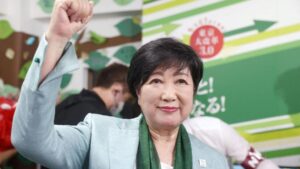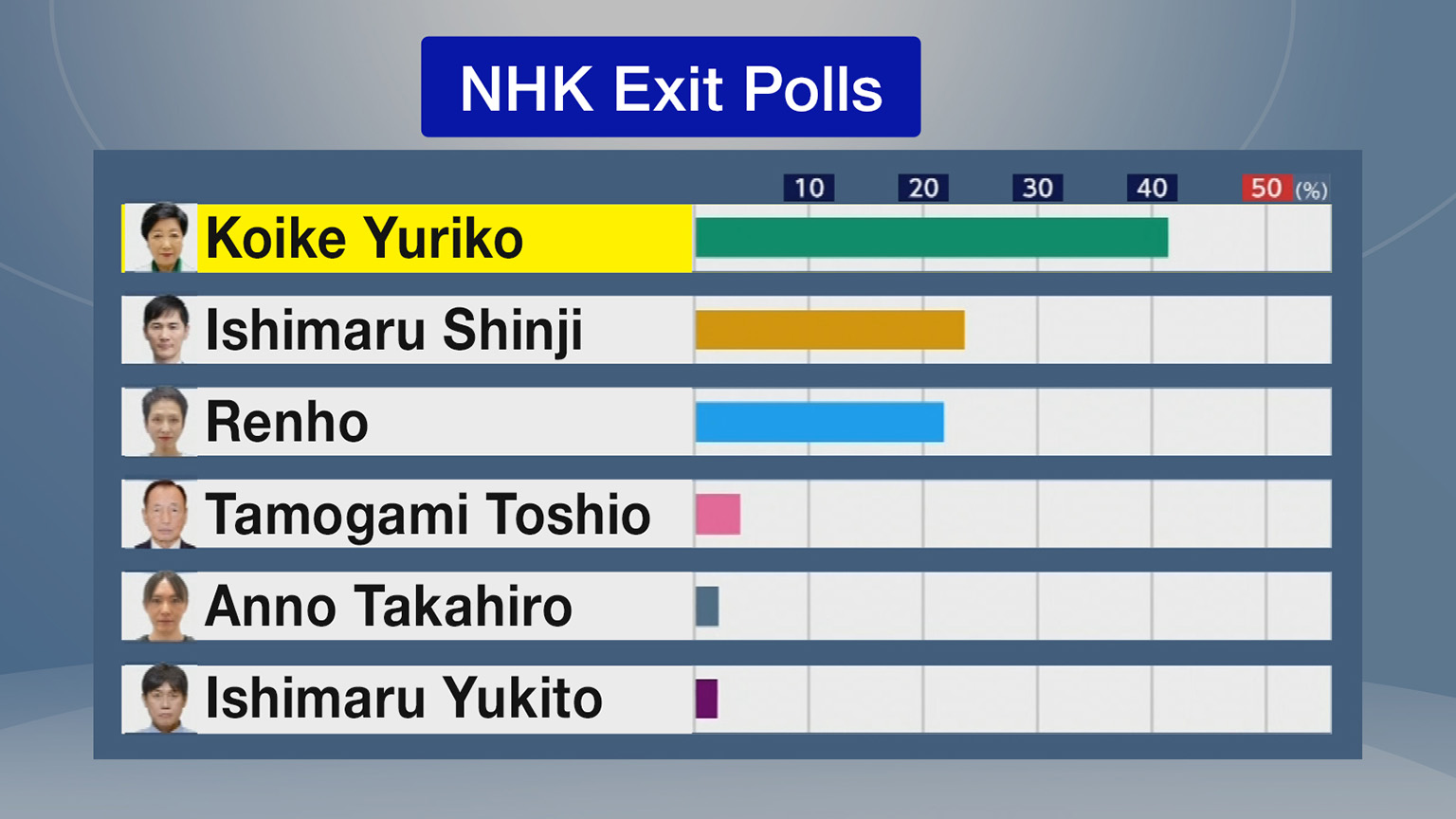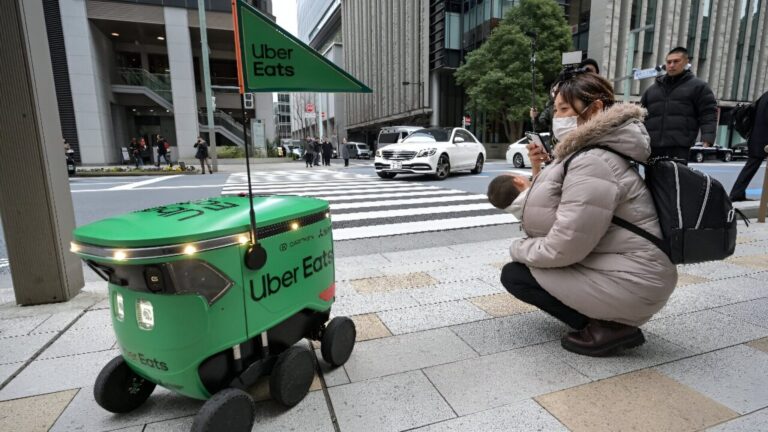
1.It’s official — incumbent Yuriko Koike won a third term as governor of the nation’s capital, with Tokyoites choosing to keep her in office for another four years. In a surprising turn of events, dark horse Shinji Ishimaru, the former mayor of the city of Akitakata in Hiroshima Prefecture, placed second, a position that was long thought to be guaranteed for high-profile liberal politician Renho, who placed third.
2.“Thanks to your strong support, I have been entrusted with the leadership of the Tokyo Metropolitan Government for a third term,” Koike said at her office on Sunday night. “I am deeply grateful to all of you who supported my election campaign in this hot weather … (and) to all those involved in the campaign for your passionate support.”
3.Koike earned nearly 3 million votes, amounting to 42.8% of overall turnout. That’s 19.1 percentage points more than Ishimaru, who picked up 1.65 million votes. Renho was dealt a major loss, receiving only 18.8% of the votes, with a little less than 1.3 million.

4.Ishimaru experienced a surprising level of success by mobilizing young voters through his large online following, as well as his message focused on advancing the economy and industry of Tokyo.
5.Voter turnout was 60.62%, up from 55% in the 2020 poll. The election saw the highest level of early voting in the city’s history, with around 19% of overall constituents having cast their ballots as of Saturday. With her win, Koike becomes the fifth governor in Tokyo’s history to secure a third term in office. The 71-year-old incumbent became the first female governor of the metropolis eight years ago.
6.She collected votes from around 60% of supporters of the ruling Liberal Democratic Party, about 80% of Komeito supporters and about 30% of unaffiliated voters, according to an exit poll conducted by NHK on Sunday. She also won votes from about 90% of supporters of her party, Tomin First no Kai, and about 40% of supporters of Nippon Ishin no Kai.

7.Over 30% of male voters chose Koike while nearly 30% preferred Ishimaru. Koike was more popular among women, with nearly 50% voting for her, while Renho won around 20% of the female vote, according to the same poll.
8.Among unaffiliated voters, almost the same percentage of constituents cast their ballot for Koike and Ishimaru. The dark horse was the most popular among the younger generation, winning the backing of around 40% of voters under the age of 30.
9.After the exit polls were announced, Ishimaru thanked his supporters at his office on Sunday night. “I can proudly say that we did everything we could do (for this election),” he said. “As for the results, I think the consensus of the people of Tokyo was expressed.”





